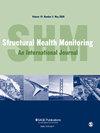Source location and anomaly detection for damage identification of buried pipelines using kurtosis-based transfer function
IF 5.7
2区 工程技术
Q1 ENGINEERING, MULTIDISCIPLINARY
Structural Health Monitoring-An International Journal
Pub Date : 2023-08-29
DOI:10.1177/14759217231191080
引用次数: 0
Abstract
The failure of buried pipelines can lead to serious consequences such as explosions, environmental pollution, settlement, as well as economic loss. To prevent these outcomes, it is crucial to identify the causes of failure and monitor their signs. One of the main causes of failure is unexpected third-party interference (TPI), which is particularly challenging to detect. Regarding to this issue, this study proposes a new algorithm for monitoring impact damage, which can be used for prompt response and damage prevention. The algorithm is integrated into the system using two approaches. The first approach focuses on detecting the location of the damage (referred to as source location). A kurtosis-based transfer function was newly proposed to selecting the optimal frequency band for time-difference-of-arrival based source location, resulting in accurate pinpointing of damage, even in a noisy environment. The second approach is used to determine whether impact damage has actually occurred by observing newly suggested features in both the time and frequency domains (referred to as anomaly detection). These features evaluate the presence of damage and the similarity between signals. As a result, it was evaluated that the field applicability was higher than that of conventional methods, and the superiority of the proposed method was also verified through field experiments. The method proposed in this study is expected to enable immediate response when the integrity of the buried pipelines is on the line of failure due to TPI.基于峰度传递函数的埋地管道损伤识别源定位与异常检测
埋地管线的失效会造成爆炸、环境污染、沉降和经济损失等严重后果。为了防止这些结果,确定失败的原因并监测其迹象至关重要。故障的主要原因之一是意外的第三方干扰(TPI),这对检测来说尤其具有挑战性。针对这一问题,本研究提出了一种新的冲击损伤监测算法,可用于快速响应和损伤预防。该算法通过两种方法集成到系统中。第一种方法侧重于检测损伤的位置(称为源位置)。提出了一种基于峰度的传递函数,用于选择基于到达时间差的源定位的最佳频带,即使在噪声环境下也能准确定位损伤。第二种方法是通过观察时域和频域新提出的特征(称为异常检测)来确定撞击损伤是否实际发生。这些特征评估损伤的存在和信号之间的相似性。结果表明,该方法的现场适用性高于常规方法,并通过现场试验验证了该方法的优越性。本研究提出的方法有望在埋地管道完整性因TPI而处于失效线上时实现即时响应。
本文章由计算机程序翻译,如有差异,请以英文原文为准。
求助全文
约1分钟内获得全文
求助全文
来源期刊
CiteScore
12.80
自引率
12.10%
发文量
181
审稿时长
4.8 months
期刊介绍:
Structural Health Monitoring is an international peer reviewed journal that publishes the highest quality original research that contain theoretical, analytical, and experimental investigations that advance the body of knowledge and its application in the discipline of structural health monitoring.

 求助内容:
求助内容: 应助结果提醒方式:
应助结果提醒方式:


